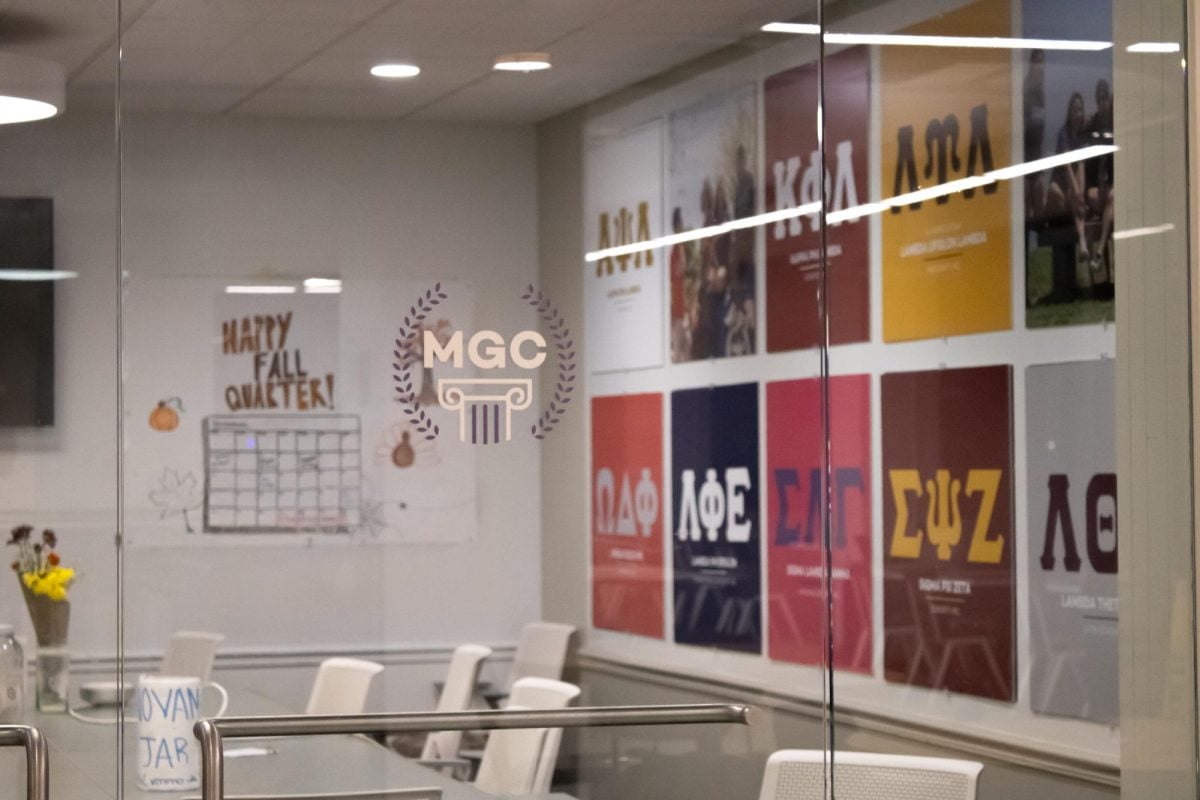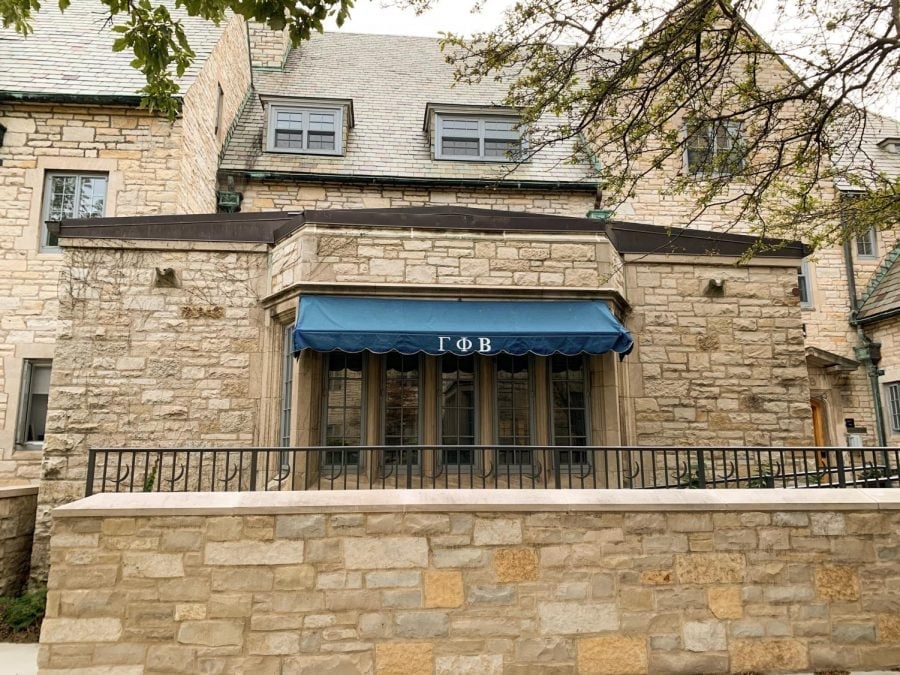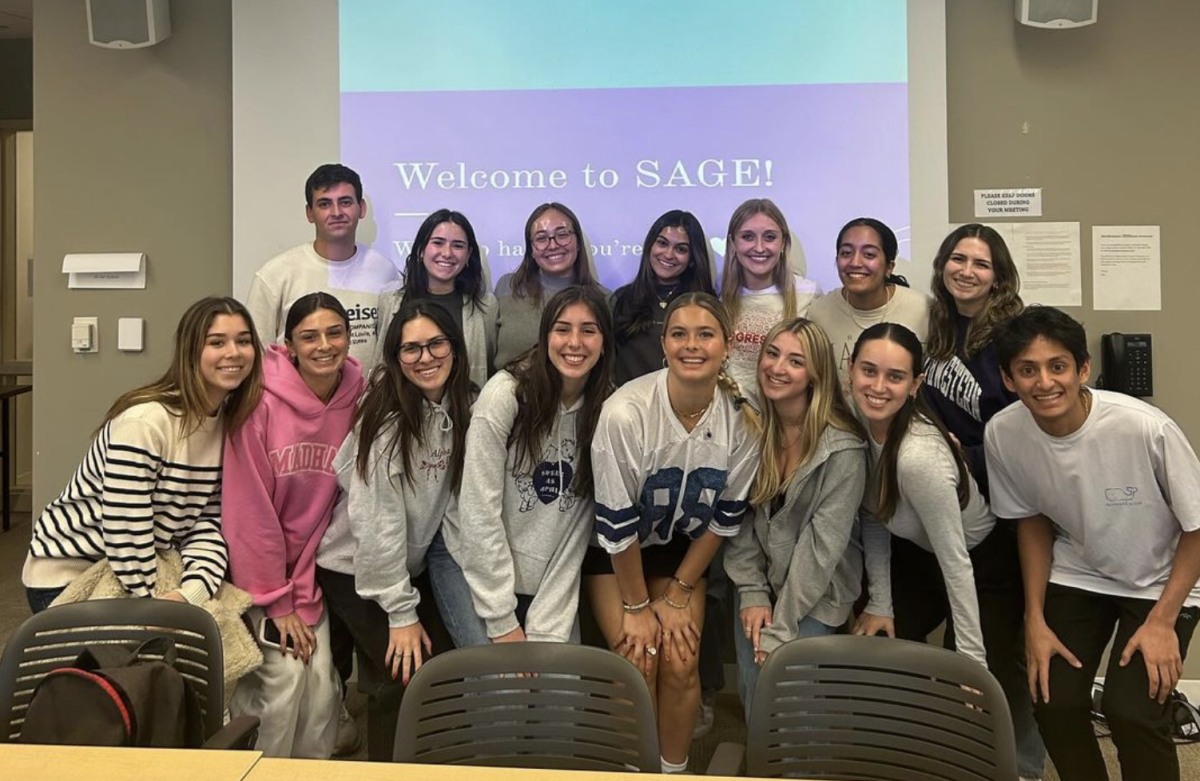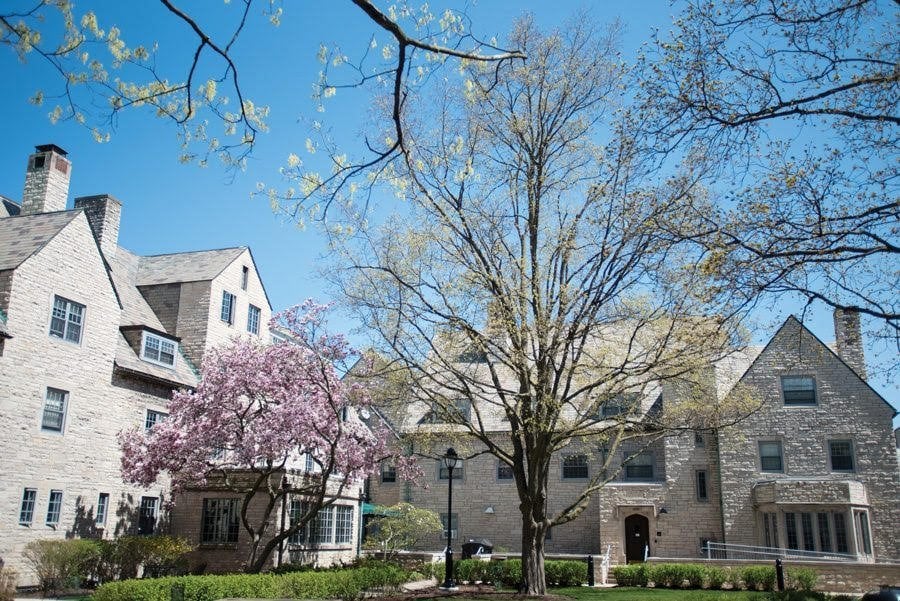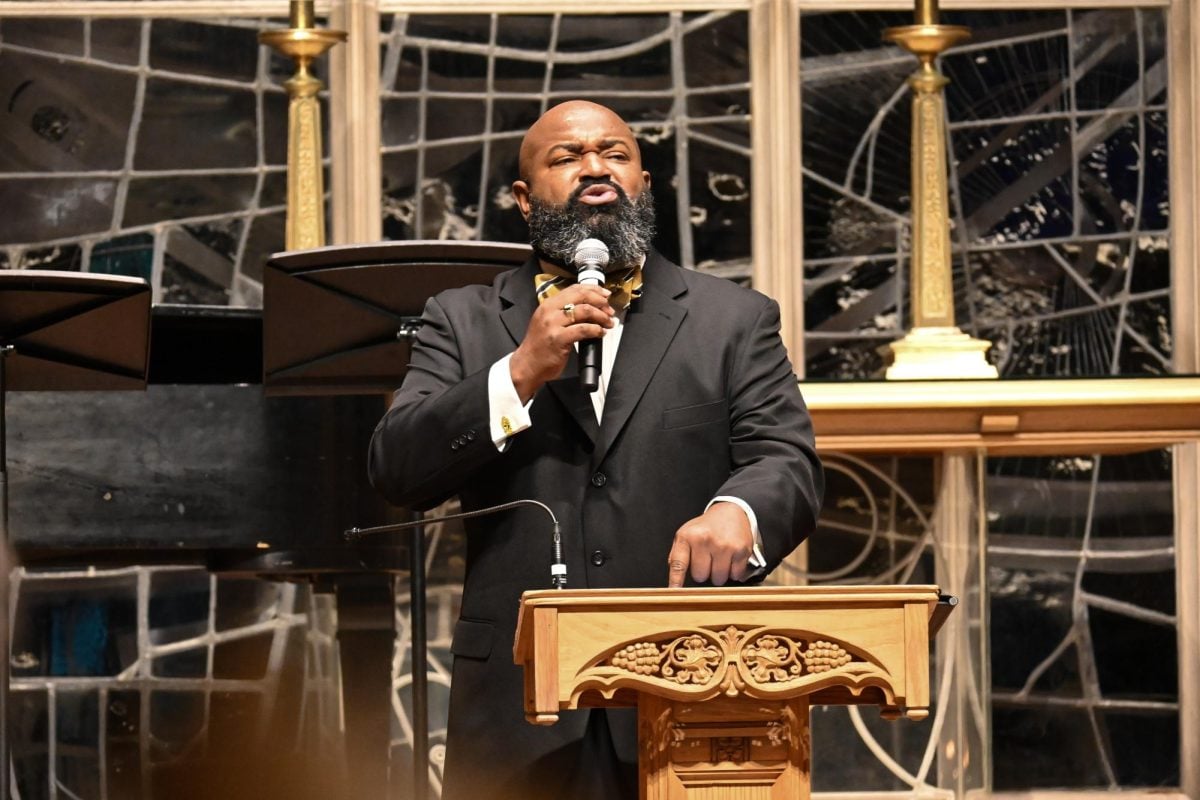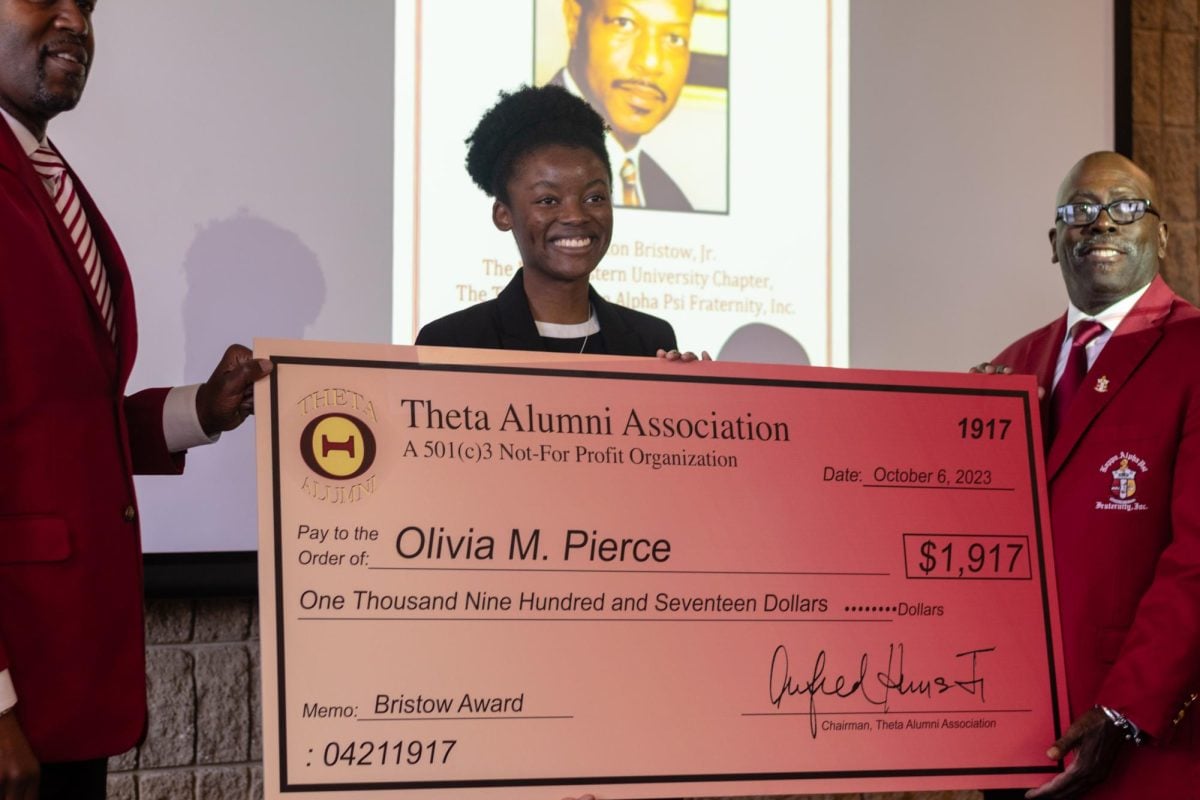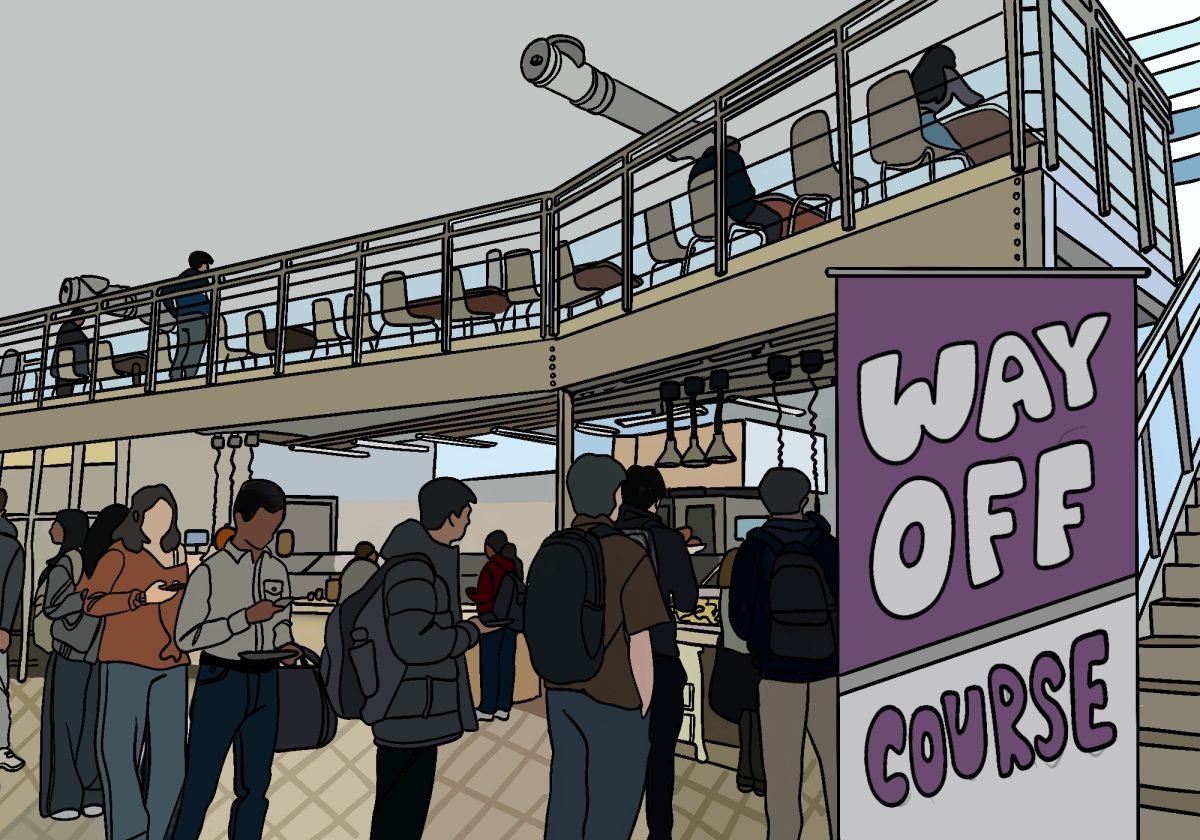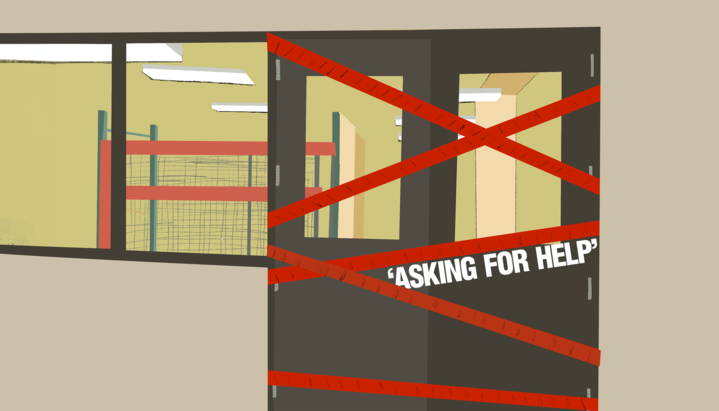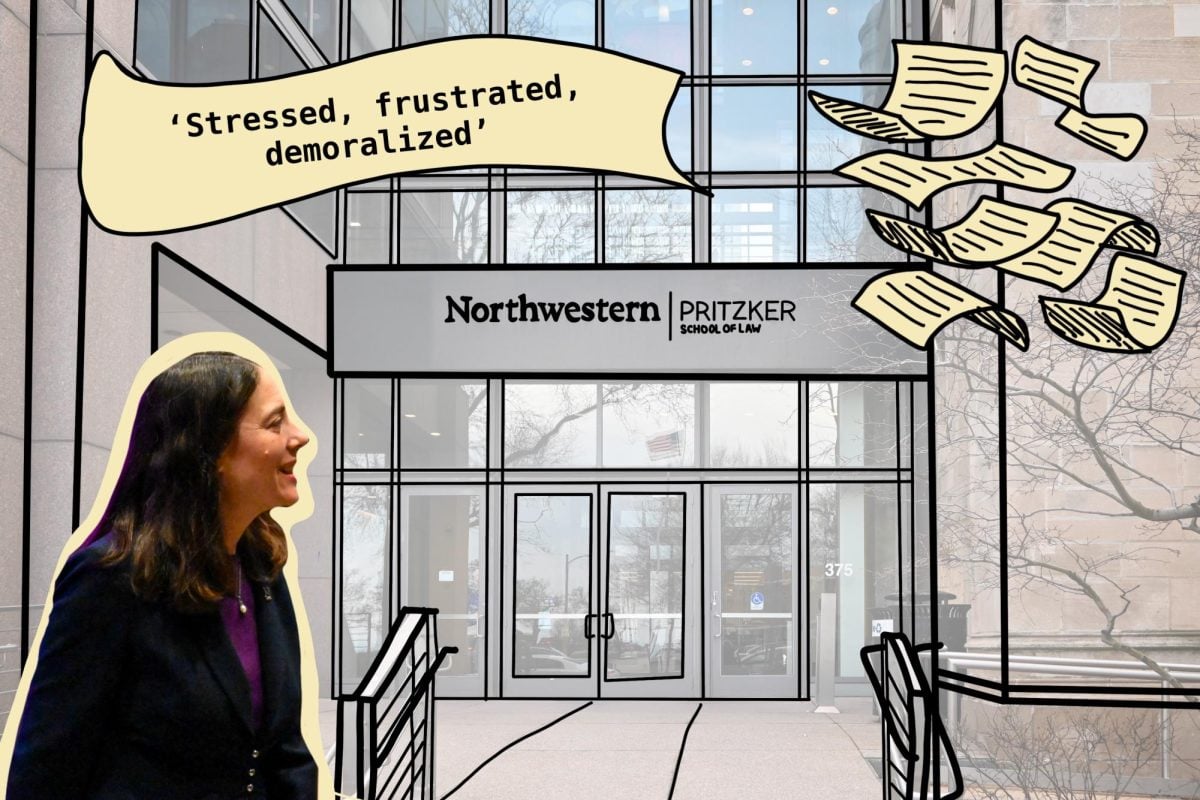When Associated Student Government’s next president takes office, he will inherit an organization facing a longstanding crisis of legitimacy and functional flaws, one even its top leaders say needs major reform.
Campaign slogans dating back to the 1970s echo a cyclical push for change. “Away from Ineptitude.” “Action…for a change.” “Change without compromise.” And this year? “It’s Time.”
A similar narrative unfolds during most ASG presidential elections: A candidate promises to fix a broken system even they admit most students barely understand.
But once settled in on the third floor of Norris, presidents confront the reality that changing a 43-year-old institution takes more than chalking Sheridan Road and showing up at dorm firesides.
Outgoing President Austin Young aimed for cultural change, vowing not to lock himself away in the ASG office and emphasizing the organization’s social brand. His predecessor, Claire Lew, fought for structural change, spending more than a year promoting a radical structural overhaul that died in Senate. Combined, their legacies and the challenges they faced call into question what kind of change – if any – is feasible within ASG.
Change is a task that requires more than a single presidential term, according to past and current ASG senators, presidents and candidates. And whoever wins Friday’s run-off election, whether it be Kameron Dodge or Victor Shao, may not be able to achieve the change their flyers and campaign videos promise.
“Some things take time,” said Claire Lew, ASG president from 2010 to 2011. “A university is a really slow-moving animal, and we’re only here for four years, and for something to be able to make that change, I would guess that it would take more time. And it doesn’t have to.”
Regardless of student perception, University administrators say ASG remains a powerful voice for students.
“They’re empowered to play a major role in the University,” University President Morton Schapiro said an interview with The Daily last fall. “I certainly treat them as if they do.”
Reconstruction breakdown
At the end of her term last spring, Lew took the rhetoric of change to the Senate floor. She had created an ad hoc committee in Fall 2010 tasked with reevaluating the structure of Senate, ASG’s voting body comprising 51 senators in four caucuses. Lew found it problematic that depending on the caucus, some senators are directly elected while others are merely appointed.
“People can be represented almost three or four times depending on what things you’re involved in,” she said. “There’s a reason why students don’t feel like there’s one person they can go to.”
The task force identified three Senate failings: an overlap in representation, a lack of legitimacy and the performance of senators themselves. Based on these findings, Lew proposed a resolution that would cut Senate down to 20 seats and eliminate caucuses. Instead, each at-large senator would be elected by the student body as a whole. With fewer seats, she argued, senators would have to fight for their jobs and be ready to serve the entire NU community.
But when Lew introduced the resolution, senators balked.
“Claire kind of formed her own independent task force and came up with her own plan without consulting senators,” said Francis Brooke, a Weinberg senior who has served as an ASG senator since winter of his freshman year. “That’s a radical cut both in seats and a radical change in ASG overall, so there was a lot of shock and resentment. The issue became divided pretty quickly.”
Following Lew’s lead, other senators drafted less drastic reconstruction plans. Current Senate Speaker and former Daily staffer Ani Ajith, then a senator, suggested halving the membership of three out of four caucuses, and allowing the Student Groups Caucus to eliminate seats at its own discretion. Meanwhile, former ASG senator Isaac Hasson proposed a Senate with two senators from each class and an academic senator from each undergraduate school in addition to those representing student groups and places of residence. In total, the Weinberg junior called for 30 senators.
The night Hasson introduced his legislation as new business, the push to restructure met a familiar fate: It went to committee. In the middle of hearing the other reconstruction proposals to vote on, Brooke moved to instead form a committee that would create one cohesive resolution, according to ASG minutes from April 20, 2011.
A few speakers later, former ASG senator Matt Bellassai, who ran in last year’s presidential election, expressed his frustration.
“We started this process nine months ago,” the Medill senior told Senate. “But nobody responded. You guys need to care.”
Brooke’s motion passed. The task force wrote a resolution to cut the number of Senate seats to 34: three for the Greek Caucus, five for Off Campus, 10 for Residence Hall Association/Residential College Board and 11 for Student Groups.
The bill also included measures intended to improve senator accountability. A student group would lose its seat for a year if left vacant for more than two consecutive weeks. Additionally, the proposal allowed clubs with similar interests to unite and seek a joint Senate seat.
Despite the headway in Senate, the rest of the campus remained unengaged, with just three students outside ASG and campus media attending an open forum to discuss the proposal May 16.
“It’s such a dynamic meeting today, ” Young joked at the time.
In the end, senators rejected the resolution that would have put their own seats in jeopardy. Just before passing the bill, Senate voted to amend it, striking the reconstruction clauses and ensuring Senate would retain all 51 seats.
Almost a year later, Hasson has reconsidered his opposition to Lew’s original plan as too radical. Hasson, who has been abroad since fall, said the task force’s final inability to restructure ASG “made Senate look totally inept.”
“That whole bureaucratic creation of a super committee…is a total admission of failure,” he said. “The idea that we need all of this bureaucracy to talk about how some students aren’t getting represented is reflective of people who are a little too self-important.”
Other senators maintain the problem with ASG stems from the culture of Senate rather than the number of seats. Weinberg sophomore Aaron Zelikovich, who initially supported Lew’s plan, said he does not believe senators accurately represent NU students. However, he said he realized last spring that eliminating senators would not improve the quality of Senate’s work.
“(Lew) might be surprised to hear I think it was actually onto something,” Young said of Lew’s proposal. “I think the core principle where people join Senate not just to represent a specific set of constituents but a percentage of the students at large … that would allow Senate to become a body that’s truly focused on campus-wide issues.”
Young said that to be successful, another push for reconstruction would have to be framed not just as internal reorganization but also as a way to better serve students.
Looking back, Lew said she believes ASG has yet to realize its potential as a governing body. Senate, Lew said, should take a hard look at whether it reaches its constituents.
“I think a good litmus test would be to just ask any student walking down Sheridan if they know what ASG is or if they care about it,” she said. “And see what they say.”
New slogans, old problems
A cursory glance at this year’s ASG presidential campaigns reveals candidates fed up with their student government.
Weinberg juniors Dan Tully and running mate Jeziel Jones left ASG after their freshman years and campaigned this election cycle on a platform denouncing the same insular bureaucracy that prompted their departures.
“It stays in Norris, and it’s not relevant to students,” Tully told The Daily’s editorial board last week. “If it’s not relevant to students, it really doesn’t matter. So what I want to do is change the focus of ASG, is keep the focus away from itself. It’s self-obsession.”
Jones called ASG a “very old, antiquated organization” that can be read about in textbooks.
Tully has proposed simply bypassing the Senate if it stunts progress on key campus issues. At the editorial board meeting, he said he would have no problem defying the ASG constitution, using his executive power to carry out an agenda for change.
Tully and Jones were not alone in running what was essentially a campaign more against ASG itself than their fellow contenders.
“Right now, ASG is very negative in that anything that’s proposed is torn down by other people,” Medill junior Brad Stewart, Victor Shao’s running mate, told The Daily editorial board.
Shao, a Weinberg junior, said ASG “does not feel like a cohesive community. … People have to feel that sense of purpose.”
It’s a sense of purpose that’s lacking, especially when observed through the eyes of the average student, according to the Dodge-Monacelli campaign.
Presidential candidate Kameron Dodge, a SESP junior, told The Daily’s editorial board that the current perception of ASG can be summed up in a popular student sentiment: “I don’t really know what ASG does.”
The NU candidates’ platforms even resonate at Dartmouth College, where the structure of student government is much less rigid.
“You see candidates saying the same thing year after year about the same changes,” said J.T. Tanenbaum, a junior running for Student Assembly president at Dartmouth.
The school offers a unique case study of student government reform.
Dartmouth uses a Student Assembly in which the only elected representatives are freshmen. Students from other classes can become voting members by attending at least three meetings.
Eight different candidates are running for student body president this year – twice as many as last year.
Tanenbaum scoffed at the notion of a single candidate heralding drastic change to the Student Assembly.
“They love to come up with these grandiose ideas that are essentially pipe dreams,” he said. “But because they haven’t been involved on the ground, they don’t know their ideas are impractical.”
Tanenbaum’s campaign slogan? “Refine, refocus, reform.”
Brooke said it’s going to take more than a glossy slogan to overhaul student government.
“Every year, new candidates come into office and run on similar platforms and issues,” Brooke said. “But you really need a candidate who will stand up and be engaged.”
Evolution of ASG
Last year’s botched reconstruction reflects persistent tensions within NU’s student government. ASG was formed in 1969 to replace Student Senate, an organization its last president told The Daily was “unfortunately known as a student circus laugh-in” by its demise. The original structure of ASG was much larger, with the student body electing both the executive board and more than 100 senators.
The first student government incarnation at NU, the Student Governing Board, set up shop in 1933 as a branch of the Evanston Campus Association, according to University archives. Until 1938, the board lacked the funding powers for which ASG is now known. Instead, the body’s 12 members – six elected, six appointed by student groups – focused on its own projects, including the construction of a student union building.
Just 23 years after its founding, however, the SGB encountered conflict, fighting against NU’s Council on Undergraduate Life. The council held veto power over SGB, and they clashed about discrimination by race and religion in fraternities and sororities. In 1960, the Student Senate replaced SGB with the aim of better representing students.
The Student Senate created an umbrella of representatives: a president and vice president chosen by the entire student body, one president from each class, five senators from the freshman class, four senators from each remaining class and senators chosen from a variety of student groups.
Yet again, students claimed the body was not responsive to student views on hot-button issues such as alcohol policy and dorm parietals, visiting hours between men and women.
In 1967, a Representative Assembly with 120 students joined the Student Senate, creating a temporary bicameral structure. A student referendum officially abolished Student Senate in 1968, effectively creating ASG, which remains the longest standing form of student government at NU.
‘A learning year’
This year’s presidential candidates shifted away from advocating structural reform and instead emphasized the cultural change that could amount from smaller tweaks to ASG.
Dodge and Monacelli advocated requiring all senators belong to a working group or standing committee, thus leaving no members without a focus.
Shao and Stewart suggested penalizing student groups that fail to regularly update their information on Wildcat Connection, ASG’s index of on-campus organizations.
Tully and Jones touted the creation of an ASG task force solely devoted to greeting unfamiliar faces on campus.
Each proposal reiterates that ASG needs to make itself more accessible to a student body largely ignorant of it.
“It’s no longer good enough for ASG to expect students to come to ASG,” Dodge told The Daily’s editorial board.
Young, who won last year with the campaign slogan “Make It Matter,” said his vision for change when he took office meant executing short-term programs to show students actionable results. He said his greatest successes as ASG president were the 5K Initiative, a food truck festival, the Engaging Leaders Series and Special Interest Roundtables. Young called his term “a learning year” and said he regrets not reaching out to students more through regular “dorm dialogues.”
Young said Senate as a whole could benefit from improved communication both internally and with students.
“Senate definitely has a lot of potential, but I think a lot of Senate’s purpose gets lost in translation between what’s on paper in the ASG code and constitution and what students are actually seeing,” Young said. “A big part of that comes from the nature of what Senate works on … there is such a widespread mission for the group that a lot of times students don’t know what’s going on, and that affects who applies.”
Brooke said the task of cultural change within Senate falls sqaurely on the president’s shoulders. An effective president, he said, provides senators with “a clear vision” and a specific issue to address, whether it be campus safety or diversity. Beyond that, he said the accountability measures passed last spring have mainly helped streamline internal operations.
“Attendance has been pretty good, most of the seats have been filled,” Brooke said. “Whether we’ve been as effective as we c
ould have is a debate, but I think senators definitely take their jobs seriously and do their best to make Northwestern a better place.”
‘We’re human’
For Ajith, the political buzzword is not so much “change” as it is “progress.” And to achieve that progress, one has to target what he calls the “low-hanging fruit.”
The Weinberg sophomore’s agenda is based on seemingly easy fixes: Requiring senators to copy executive board members on emails to constituent listservs. Maintaining an updated list of working groups and committees in Senate. Ensuring senators attend every Senate meeting without ducking out halfway through. And finally, making sure ASG has a team of more than one working on its website.
Weinberg junior and ASG senator Amalia Namath said Senate has been functioning more smoothly since Ajith became speaker, with meetings that once averaged three hours now running for one hour.
Although she does not believe Senate should be restructured, Namath said the timeline ASG runs on hampers efficiency. Dorm senators tend to take office in the fall, while student group senators are chosen by their clubs in the spring.
“In terms of senators, I think it’s important to be very honest with the students, with the people we serve,” Ajith said. “And I can honestly tell you Senate needs a lot of work.”
Ajith admits there’s no “silver bullet” for mending the broken system once again denounced in this year’s presidential campaigns. But to Ajith, that doesn’t mean progress is impossible.
“Government reflects its society,” Ajith said. “I think ASG reflects campus in that we’re human, we’re students, we’re trying really hard with the time, the resources, the energy and the ideas that we have. We’re falling short, but that’s because our ambitions – the bar we’ve set for ourselves – is a level of expectation that any Northwestern student has chosen for himself or herself.”
